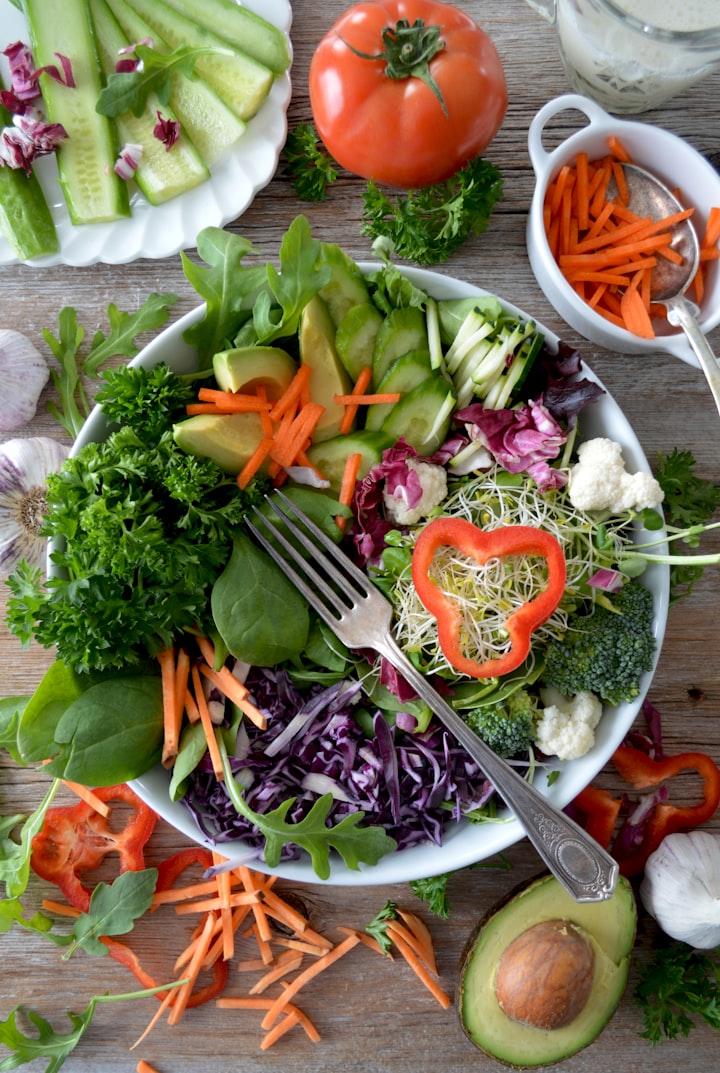The Ultimate Way To Looking Fit Quickly
Review About Keto Diet Plan

The Ultimate Keto Meal Plan
The ketogenic diet, also known as the "keto diet," is a low-carb, high-fat diet that has become increasingly popular in recent years. The goal of the diet is to get your body into a state of ketosis, where it burns fat for fuel instead of carbohydrates. This can lead to significant weight loss and improved health markers, such as improved insulin sensitivity and reduced inflammation.
To get started with the keto diet, you need to understand what to eat and what to avoid. Here is a sample meal plan to help you get started:
Breakfast:
3 eggs cooked in coconut oil or ghee, with avocado and bacon.
A spinach, mushroom and cheese omelette.
Chia seed pudding with almond milk, topped with berries and coconut flakes.
Lunch:
Grilled chicken breast with a salad of mixed greens, cherry tomatoes, cucumber, and avocado, dressed with olive oil and lemon juice.
Tuna salad with mayo, pickles, and celery, served with a side of roasted vegetables.
A bowl of chili with ground beef, tomatoes, onion, and spices, topped with shredded cheese and sour cream.
Dinner:
Baked salmon with a side of roasted broccoli and cauliflower.
Grilled steak with a side of sautéed spinach and mushrooms.
Slow-cooked pork shoulder with roasted carrots and brussels sprouts.
Snacks:
Nuts (almonds, pecans, macadamia, etc.)
Cheese
Olives
Hard-boiled eggs
Berries
Coconut chips
Beverages:
Water
Tea (green, black, herbal)
Coffee
Coconut milk or almond milk
Bone broth
To make the keto diet work for you, it's important to focus on whole, nutrient-dense foods and limit processed foods and added sugars. Some foods to avoid include:
Grains (bread, pasta, rice, etc.)
Sugary drinks (soda, juice, etc.)
Sweets and candy
Starchy vegetables (potatoes, corn, etc.)
High-carb fruits (bananas, grapes, etc.)
In addition to following the meal plan, it's also important to track your macronutrient intake. Aim to consume 70-75% of your daily calories from fat, 20-25% from protein, and 5-10% from carbohydrates. This can help ensure that you are in a state of ketosis and maximizing the benefits of the diet.
The ketogenic diet is a low-carb, high-fat diet that has gained popularity in recent years as a weight loss and health improvement strategy. The idea behind the diet is to restrict carbohydrates and increase fat consumption, causing your body to enter a metabolic state called ketosis, where it burns fat for fuel instead of carbohydrates.
When following a ketogenic diet, it is recommended to limit carbohydrate intake to around 20-50 grams per day, while increasing your consumption of healthy fats from sources such as avocados, nuts, seeds, olive oil, and fatty fish. In contrast, traditional diets usually consist of a high carbohydrate, moderate protein, and low-fat intake.
Benefits of the ketogenic diet may include:
Weight loss: By reducing carbohydrate intake and increasing fat consumption, the body burns stored fat for energy, leading to weight loss.
Improved insulin sensitivity: The keto diet has been shown to improve insulin sensitivity, which can lead to better blood sugar control and a reduction in the risk of type 2 diabetes.
Increased energy: The diet can lead to increased energy levels due to the body burning fat for fuel instead of carbohydrates.
Better mental clarity: The ketogenic diet has been shown to improve brain function and cognitive performance.
However, it's important to note that not everyone will experience the same benefits from the ketogenic diet, and some individuals may experience side effects, such as fatigue, nausea, headaches, and constipation. Additionally, it's essential to consult with a healthcare provider before starting the diet, especially if you have a medical condition or take medication.
In conclusion, the ketogenic diet can be a highly effective way to improve your health and achieve weight loss, but it's essential to approach it with care and intention. Focus on consuming whole, nutrient-dense foods and limit processed foods, and track your macronutrient intake to ensure you are getting enough healthy fats and limiting carbohydrates.
It's also important to remember that everyone is different and may need to adjust their macronutrient ratios to find what works best for them. Some people may find that they need to consume fewer carbohydrates to get into ketosis, while others may be able to consume slightly more.
Overall, the keto diet can be a highly effective way to lose weight and improve your health, but it's important to approach it with care and intention. Focus on eating whole, nutrient-dense foods, tracking your macronutrient intake, and adjusting as needed to find what works best for you.






Comments
There are no comments for this story
Be the first to respond and start the conversation.